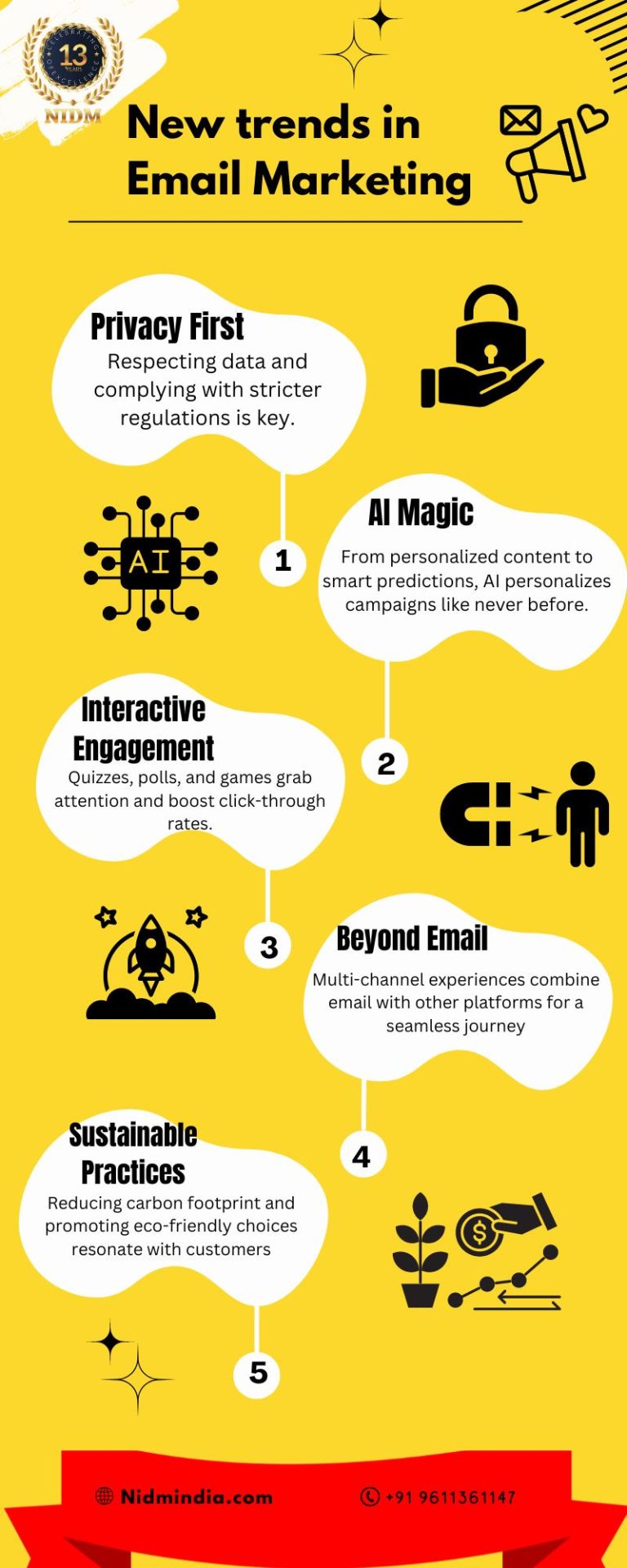Don't wanna be here? Send us removal request.
Text
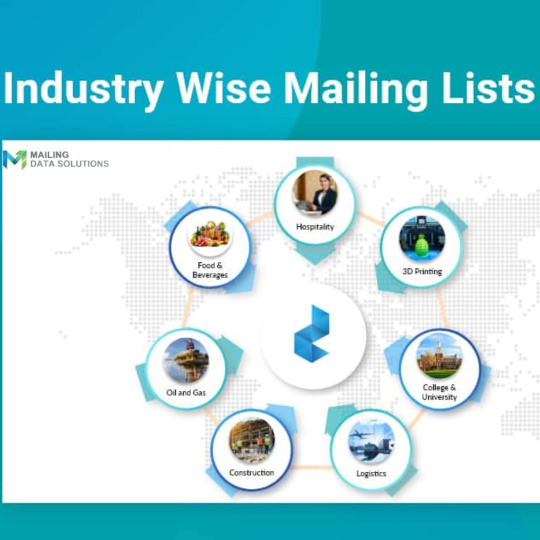
industry mailing list
A mailing list is a list of names and addresses that a company or organization keeps, so that they can send people information or advertisements
0 notes
Text
best online marketing courses
The Ethical Use of Data in Digital Marketing
Introduction:
In today's data-driven world, digital marketing thrives on information. Businesses collect and analyze vast amounts of user data to understand preferences, predict behavior, and deliver personalized experiences. However, with great power comes great responsibility, and the ethical use of this data is paramount. This article explores the delicate balance between personalization, a core tenet of effective marketing, and safeguarding individual privacy.
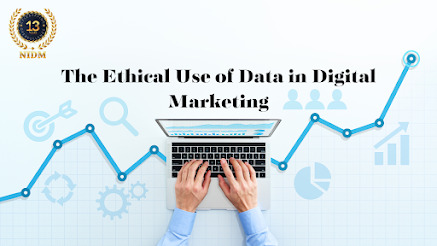
The Benefits of Data-Driven Marketing:
Personalization: Data allows brands to tailor messages, content, and offers to individual preferences, leading to higher engagement and conversion rates.
Targeted Advertising: Precise targeting ensures ads reach relevant users, minimizing wasted resources and improving campaign effectiveness.
Customer Insights: Data analysis provides invaluable insights into customer behavior, allowing brands to refine their products, services, and overall customer experience.
The Ethical Concerns:
Privacy Violations: Intrusive data collection practices and a lack of user transparency can erode trust and raise privacy concerns.
Data Misuse: Unethical use of data, such as discrimination based on personal factors, can lead to biased marketing practices and harm individuals.
Security Risks: Data breaches and unauthorized access can expose sensitive information, putting users at risk.
Striking the Right Balance:
Achieving a balance between effectiveness and ethics requires a commitment to responsible data practices. Here are some key principles:
Transparency & Consent: Clearly communicate to users what data is being collected, how it will be used, and their rights regarding their information. Obtain explicit informed consent before collecting and utilizing data.
Data Minimization: Collect only the data necessary for specific purposes and avoid gathering unnecessary information about individuals.
Security Measures: Implement robust security measures to protect user data from unauthorized access, use, disclosure, disruption, modification, or destruction.
User Control: Provide users with control over their data, allowing them to access, rectify, or erase their information upon request.
Compliance with Regulations: Adhere to all relevant data privacy regulations, such as GDPR and CCPA, to ensure legal compliance and responsible data handling.
Building Trust through Ethical Practices:
By prioritizing ethical data practices, businesses can:
Build trust with their customers: Transparency and responsible data handling foster trust and loyalty, leading to stronger customer relationships.
Enhance brand reputation: Ethical practices demonstrate a commitment to user privacy and responsible business conduct, improving brand image and reputation.
Avoid legal and financial risks: Compliance with data privacy regulations minimizes the risk of legal penalties and financial repercussions associated with data breaches or misuse.
Conclusion:
In the ever-evolving landscape of digital marketing, balancing personalization and privacy is a continuous challenge. By prioritizing ethical data practices, building trust with customers, and adhering to data privacy regulations, businesses can achieve success in a responsible and sustainable manner.
NIDM (National Institute Of Digital Marketing) Bangalore Is One Of The Leading & best Digital Marketing Institute In Bangalore, India And We Have Brand Value For The Quality Of Education Which We Provide. Our Curriculum/ Courses Are Designed with Practical knowledge and are Fully For Job Orientation Bases. We have the best curriculum, trainers, and unlimited practical hours on live projects.
0 notes
Text
best online marketing courses
The Ethical Use of Data in Digital Marketing
Introduction:
In today's data-driven world, digital marketing thrives on information. Businesses collect and analyze vast amounts of user data to understand preferences, predict behavior, and deliver personalized experiences. However, with great power comes great responsibility, and the ethical use of this data is paramount. This article explores the delicate balance between personalization, a core tenet of effective marketing, and safeguarding individual privacy.
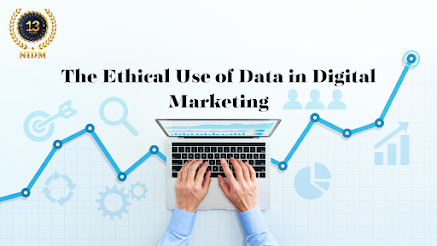
The Benefits of Data-Driven Marketing:
Personalization: Data allows brands to tailor messages, content, and offers to individual preferences, leading to higher engagement and conversion rates.
Targeted Advertising: Precise targeting ensures ads reach relevant users, minimizing wasted resources and improving campaign effectiveness.
Customer Insights: Data analysis provides invaluable insights into customer behavior, allowing brands to refine their products, services, and overall customer experience.
The Ethical Concerns:
Privacy Violations: Intrusive data collection practices and a lack of user transparency can erode trust and raise privacy concerns.
Data Misuse: Unethical use of data, such as discrimination based on personal factors, can lead to biased marketing practices and harm individuals.
Security Risks: Data breaches and unauthorized access can expose sensitive information, putting users at risk.
Striking the Right Balance:
Achieving a balance between effectiveness and ethics requires a commitment to responsible data practices. Here are some key principles:
Transparency & Consent: Clearly communicate to users what data is being collected, how it will be used, and their rights regarding their information. Obtain explicit informed consent before collecting and utilizing data.
Data Minimization: Collect only the data necessary for specific purposes and avoid gathering unnecessary information about individuals.
Security Measures: Implement robust security measures to protect user data from unauthorized access, use, disclosure, disruption, modification, or destruction.
User Control: Provide users with control over their data, allowing them to access, rectify, or erase their information upon request.
Compliance with Regulations: Adhere to all relevant data privacy regulations, such as GDPR and CCPA, to ensure legal compliance and responsible data handling.
Building Trust through Ethical Practices:
By prioritizing ethical data practices, businesses can:
Build trust with their customers: Transparency and responsible data handling foster trust and loyalty, leading to stronger customer relationships.
Enhance brand reputation: Ethical practices demonstrate a commitment to user privacy and responsible business conduct, improving brand image and reputation.
Avoid legal and financial risks: Compliance with data privacy regulations minimizes the risk of legal penalties and financial repercussions associated with data breaches or misuse.
Conclusion:
In the ever-evolving landscape of digital marketing, balancing personalization and privacy is a continuous challenge. By prioritizing ethical data practices, building trust with customers, and adhering to data privacy regulations, businesses can achieve success in a responsible and sustainable manner.
NIDM (National Institute Of Digital Marketing) Bangalore Is One Of The Leading & best Digital Marketing Institute In Bangalore, India And We Have Brand Value For The Quality Of Education Which We Provide. Our Curriculum/ Courses Are Designed with Practical knowledge and are Fully For Job Orientation Bases. We have the best curriculum, trainers, and unlimited practical hours on live projects.
0 notes
Text
best online marketing courses

Remember, a successful marketing strategy doesn't always require a massive budget. By utilizing
NIDM (National Institute Of Digital Marketing) Bangalore Is One Of The Leading & best Digital Marketing Institute In Bangalore, India And We Have Brand Value For The Quality Of Education Which We Provide. Our Curriculum/ Courses Are Designed with Practical knowledge and are Fully For Job Orientation Bases. We have the best curriculum, trainers, and unlimited practical hours on live projects.
0 notes
Text
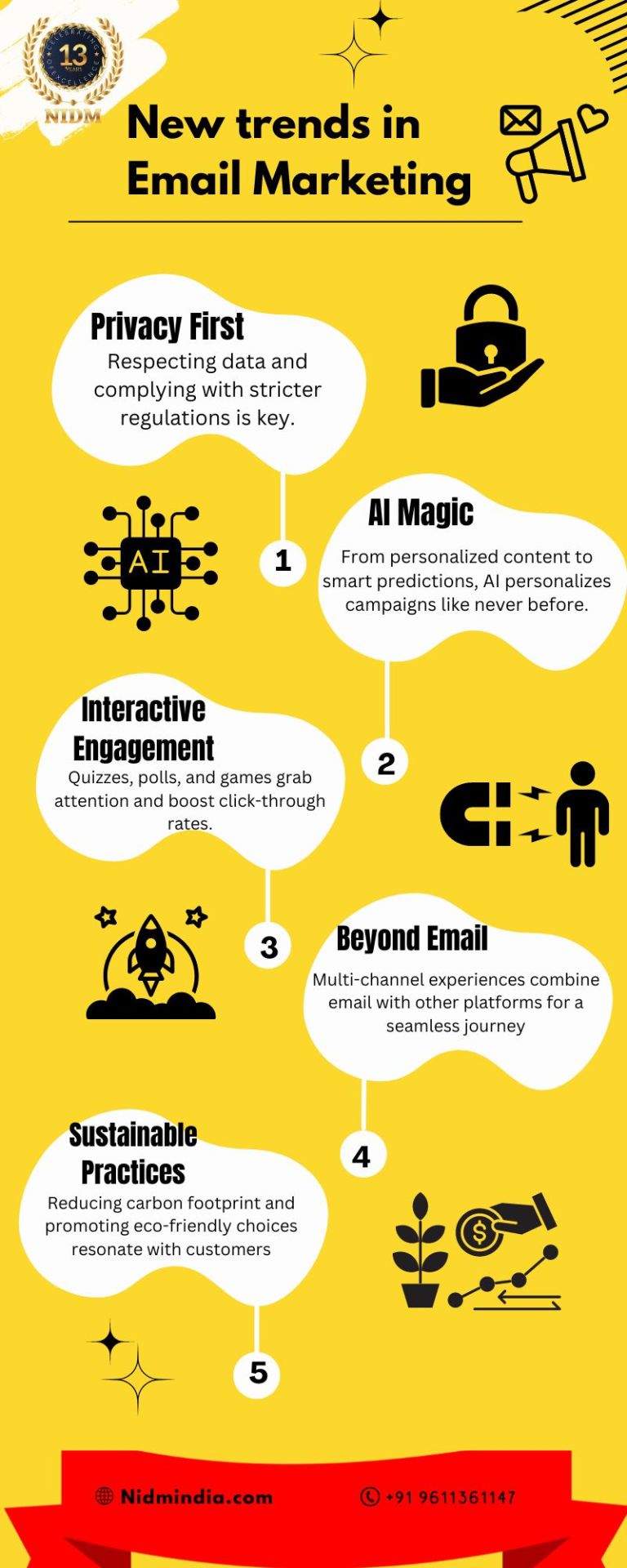
Email marketing is like having a direct line to your customers' inboxes. It's a powerful tool for building relationships, promoting products, and driving sales
0 notes
Text
Digital Marketing Training In Bangalore
Influencer marketing is a strategic form of digital marketing that leverages individuals with a significant online presence, known as influencers,
0 notes
Text

Digital Marketing Training In Bangalore
SEO, or Search Engine Optimization, is a set of strategies and techniques aimed at improving a website's visibility and ranking on search engine results pages (SERPs).
0 notes
Text
Best digital marketing institute in Bangalore
NIDM-National Institute of Digital Marketing - 30,000+ Trained I 13 yrs Excellence I 100% Placements most advanced course with certifications. India's No.1 Institute in Bangalore
1 note
·
View note
